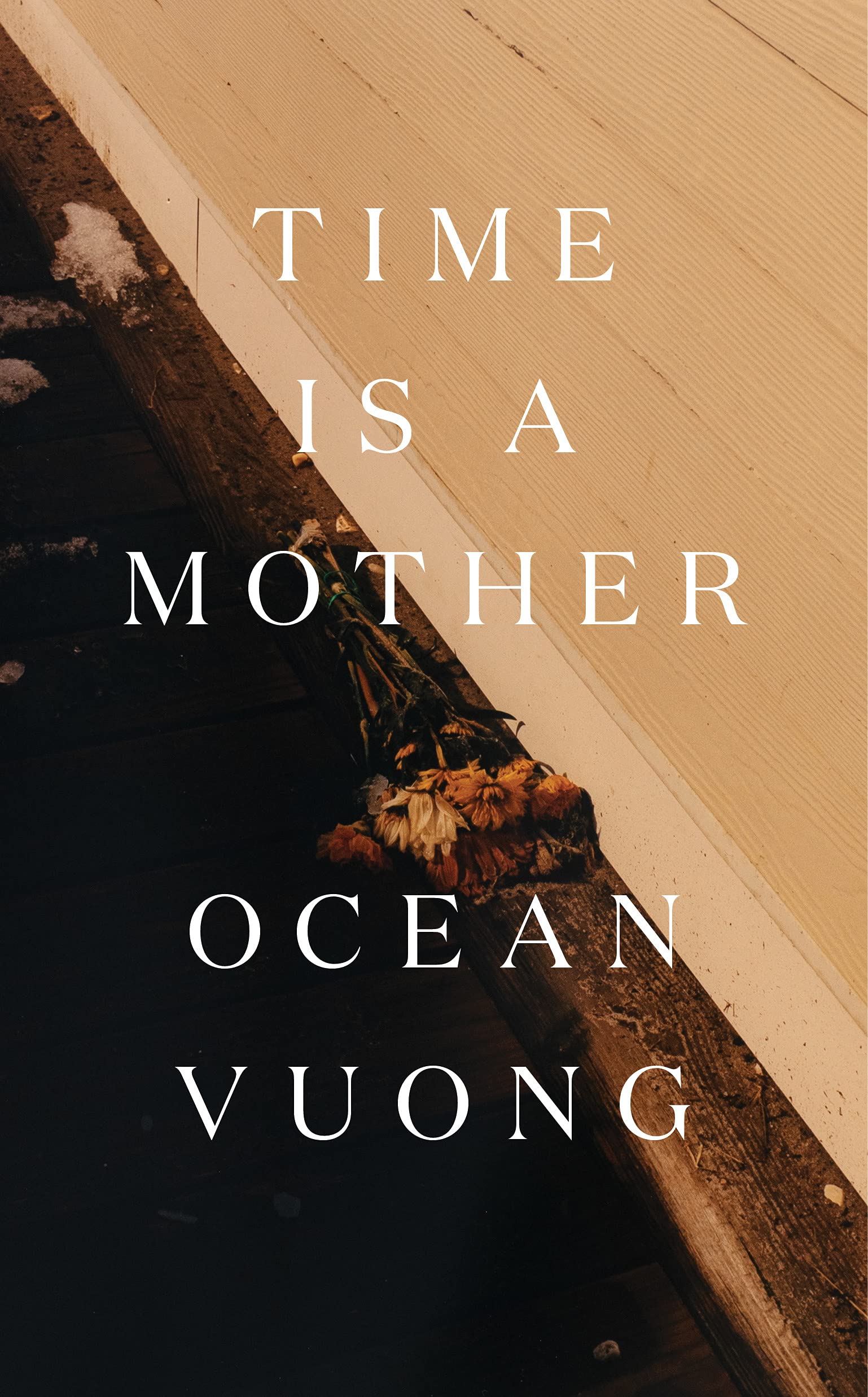Published September 25th, 2023
Review
by Namita Suberi
Death and grief inspire many. These feelings then find footing on the page. We know many a poet who turn to poetry to cope with death and everything related to the absolution and vastness of it. Tao Yuanming, Emily Dickinson, Sylvia Plath, Anne Sexton, and Nikki Giovanni among many others. These writers span across cultures, ethnicities, countries, and historical periods. Ocean Vuong is one such poet who is keeping the fire burning today.
Ocean Vuong is a Vietnamese-American poet, novelist, and essayist known for his impactful literary work. He was born on October 14, 1988, in Ho Chi Minh City, Vietnam, and immigrated to the United States with his family when he was a child. His works have found wide acclaim because of his lyrical style of writing and deeply impactful prose.
His debut novel On Earth We’re Briefly Gorgeous (2019) was a global success. It is a semi-autobiographical novel which explores the life of a young Vietnamese-American man reflecting on the complexities of his identity, his family’s history, and his relationship with his mother, who forms a central figure in the novel.
-peter-bienkowski.jpeg)
Time is a Mother (2022) by Ocean Vuong is yet another book of poetry among others that demands full attention from its readers. It delves deeply into how he tries to cope and survive the aftermath of his mother’s death.
It leaves your stomach in a knot and your heart heavy, and before you know it, you’re gasping for air.
The book starts off with a very vivid and emotive poem, “The Bull.” This poem sets the tone for what’s to come. Reading it felt like a beautiful and surreal fever dream. The poetic persona is bewitched by this creature in the night, whose eyes are “kerosene blue” and “green-blue lamp swirled in the sockets.” It hints at the desire and fragility of life that reappear as key themes throughout the anthology. The helplessness with which the persona faces the creature, or the world, is apparent in the words:
I had no choice. I opened the door
& stepped out.
Vuong explores this helplessness and loss of control in yet another of his poem, “Rise and Shine”:
Scraped the last $8.48
from the glass jar.
Your day’s worth of tipsat the nail salon. Enough
for one hit.
The poem touches on drug addiction the protagonist must be suffering from. The powerlessness of the protagonist as he scrapes the jar of his mother’s hard-earned tips is evident in the line, yet he also shows the tenderness with which he makes a breakfast for his mother in the way she taught him:
A flick
of fish sauce, garlic crushed
the way youtaught me. The pan bubbling
into a small possible
sun. I ama decent son.
In “Snow Theory,” the persona finally tries to come to terms with the death of his mother and the acceptance thereafter:
What we’ll always have is something we lost
In the snow, the dry outline of my mother
Promise me you won’t vanish again, I said
She lay there awhile, thinking it over
One by one the houses turned off their lights
I lay down over her outline, to keep her true
The feeling of loss is evident in the poem, but the determination of the persona to remember her “outline” is clear too.
The themes of death, loss, and impact of war are raw and straightforward in the anthology, and yet, despite everything, the persona in all these poems doesn’t sink to nihilism. Ocean Vuong explores the death not as the end of something, but as the beginning of something new.

After the acceptance of death, Vuong makes way for hope, focusing on the beauty of a life lived. It rings like a remembrance in the middle of despair and echoes the sentiments of “Hope is a thing with Feathers” by Emily Dickinson. In all the sinking hole of internal and external struggle and the sinkhole of anguish, the persona hangs on to hope:
Because where I'm from the trees look like family
laughing in my head.Because I am the last of my kind at the beginning of hope.
Because what I did with my one short beautiful life—
was lose iton a winning streak.
The beginning of the poem talks about loss and death and murder of innocence. However, as we near the end of the anthology, I noticed it gets more hopeful under all that was raw and macabre. There is a thirst for life and beauty, a curiosity underneath all the pain and grief, and finally a path to freedom:
Then it came to me, my life. I remembered my life
the way an ax handle, mid-swing, remembers the tree.& I was free.
Overall, Time is a Mother is a brilliant articulation of loss and longing, of death and life, and, most of all, hope.
Vuong’s words are raw and brutal, yet there is a tenderness and vulnerability in those words that lead the reader into discovering something new. The whole anthology breaks and remakes the longing and loss into something encouraging that cannot be achieved without having gone through all that the person in the poem did. It reminds me of Robert Frost’s famous line:
I can see no way out but through.
Nationality: Bhutanese
First Language(s): Nepali
Second Language(s):
Dzongkha,
English
Supported by:


Comments on "At The Beginning of Hope: A Review of Ocean Vuong’s "Time Is a Mother""
Please log in to submit a comment.
Login